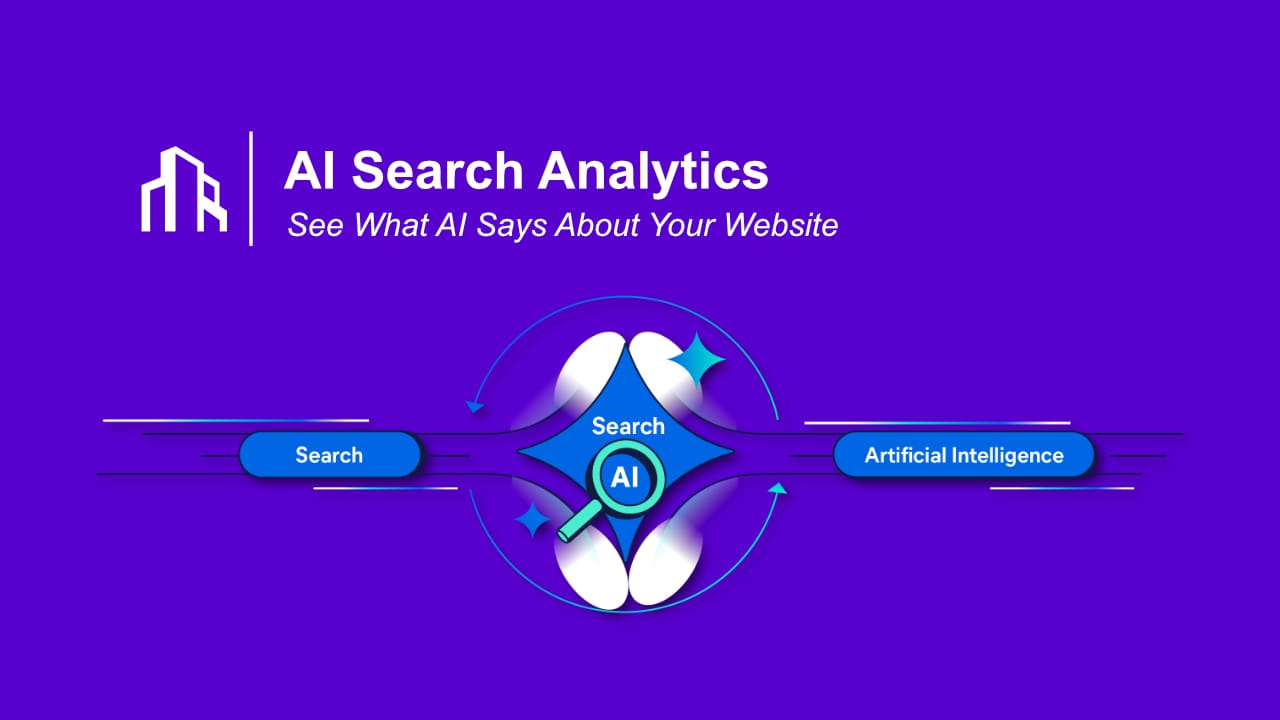AI Search Analytics: How to Track What ChatGPT and Gemini Say About Your Website

Search analytics is changing fast. For years, tools like Google Analytics and Search Console told you who visited your website and what keywords brought them there. But now, millions of users ask their questions directly to AI tools like ChatGPT, Perplexity, and Claude without clicking on any website at all.
That means your website might be mentioned or summarized inside AI answers, yet you’ll never see that data in your analytics. This shift has created a new category: AI Search Analytics or, as some call it, AI Answer Analytics. It’s all about measuring how AI systems describe your website and how often your content appears in AI-generated results.

Rank Prompt Analytics
Track, test, and improve your AI prompts with precision. Rank Prompt helps you analyze how ChatGPT, Claude, and Perplexity respond — giving you real data on what performs best for engagement, accuracy, and conversions.
- ✓ Measure prompt effectiveness across AI models
- ✓ Compare output quality, tone, and accuracy
- ✓ Optimize prompts for higher visibility and trust
Why this matters
AI platforms are becoming the new front page of the internet. They summarize, recommend, and compare businesses instantly and if your website isn’t part of that conversation, you’re invisible to a growing segment of users.
For example: if someone asks ChatGPT “best workflow automation companies,” the model might list Scalevise, Zapier, or Make.com based on public information. That’s a visibility event, even if no one visits your site. Measuring those events helps you understand how AI perceives your authority, accuracy, and trust level.
What AI Search Analytics tracks
- How often your website or content is mentioned in AI answers.
- Which sources or competitors are cited alongside you.
- Whether AI descriptions of your site are accurate.
- How sentiment and context evolve over time.
- What topics or queries trigger your presence inside AI-generated results.
This isn’t about tracking traffic it’s about tracking visibility and reputation inside AI-driven platforms.
The reality: only a few tools do this well
AI Search Analytics is still new, and most SEO suites are only starting to adapt. Below is a list of the most credible tools available today, what they offer, and what they cost.
| Tool | What it does | Starting price |
|---|---|---|
| PromptWatch | Monitors mentions of your website or content in ChatGPT and Perplexity answers. Shows how often your domain appears and notifies you of changes. | From $49/month |
| ZipTie AI | Tracks brand or domain visibility inside AI results and analyzes which URLs or topics are referenced. | From $99/month |
| GenRank | Focuses on ChatGPT and Google AI Overviews, showing how AI engines summarize and rank websites. | From $39/month |
| BrandMentions | General monitoring tool for web, news, and social platforms — now adding limited AI visibility data. | From $99/month |
| Nozzle + SERP API (custom setup) | Developer approach: you can query Perplexity and ChatGPT regularly and log answers in a private dashboard. | Costs depend on usage (typically $20–$100/month) |
| Semrush (AI Beta Module) | Offers early insight into AI-overview tracking and generative search results for major keywords. | From $129.95/month |
Prices as of Q4 2025. Most tools charge by number of queries, domains, or tracked terms.
These tools are still evolving none give a full picture yet but they’re the best way to understand how AI platforms are representing your website today.
How to get started
You can begin measuring AI visibility even without paid tools.
- Run manual checks: ask ChatGPT or Perplexity questions about your industry and see if your website is mentioned.
- Take screenshots and compare over time: if you appear more often, your authority is rising.
- Monitor your structured data: schema markup (FAQ, Product, Organization) improves how AI interprets your content.
- Use free trials: most analytics tools above offer 7–14 days of testing. Track at least 10 core queries related to your business.
- Collect mentions in a spreadsheet: record the platform, question, and AI response you’ll start spotting patterns in visibility and accuracy.
How to improve your AI visibility
- Publish clear, factual content about your business and services.
- Use structured data to help AI systems understand your pages.
- Keep your content fresh AI models favor updated sources.
- Add a company or resource glossary with definitions of your products and terms.
- Cross-link related pages so AI can see your internal logic and authority.
These actions don’t just help SEO; they make it easier for AI models to cite your website correctly.

Rank Prompt Analytics
Track, test, and improve your AI prompts with precision. Rank Prompt helps you analyze how ChatGPT, Claude, and Perplexity respond — giving you real data on what performs best for engagement, accuracy, and conversions.
- ✓ Measure prompt effectiveness across AI models
- ✓ Compare output quality, tone, and accuracy
- ✓ Optimize prompts for higher visibility and trust
The bottom line
AI Search Analytics is becoming a vital part of digital visibility. As AI tools replace traditional search results, your analytics strategy needs to evolve. The companies that measure how AI perceives them will have a clear advantage over those still chasing keyword rankings alone.
If you want to understand how AI platforms describe your website and what to do when they get it wrong now is the time to start tracking it.
Need help interpreting your AI visibility?
At Scalevise, we help businesses understand how AI tools like ChatGPT and Perplexity reference their websites. We can guide you through setting up simple monitoring workflows and selecting the right tools for your budget. Reach out via our contact page to explore how AI Search Analytics can help your business stay visible in the age of answer engines.
